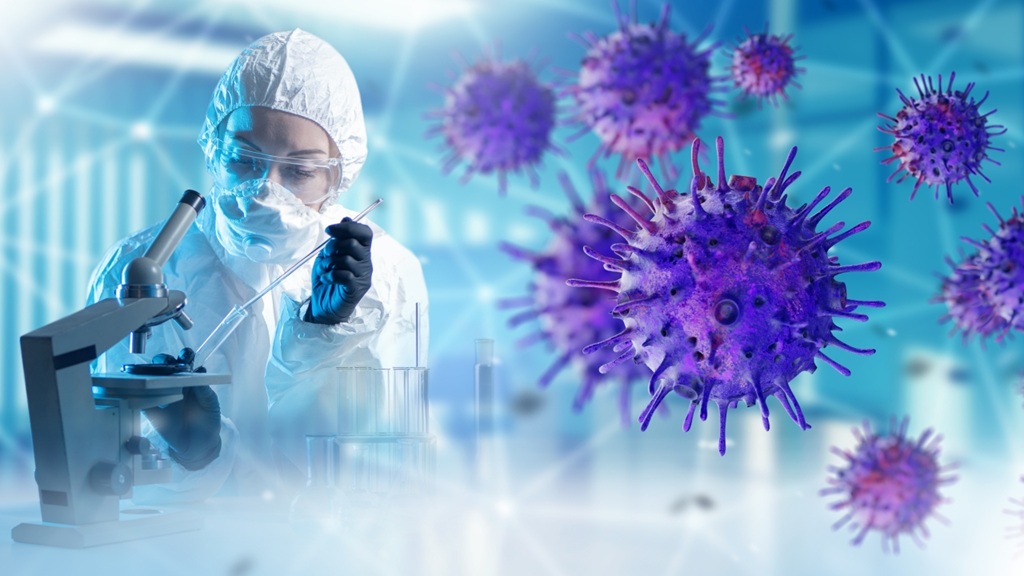Infectious diseases are illnesses caused by harmful microorganisms (pathogens), including viruses, bacteria, fungi, and parasites. They can enter the body through various means, like the air, water, food, or contact with infected individuals. They can cause a wide range of symptoms, from mild discomfort to life-threatening conditions.
This guide explains the types of infectious diseases, their causes, prevention strategies, diagnosis, and treatment options.

Infectious diseases are illnesses caused by harmful microorganisms, including bacteria, viruses, fungi, and parasites. These pathogens can enter the body through various means, like the air, water, food, or contact with infected individuals. They can cause a wide range of symptoms, from mild discomfort to life-threatening conditions.
Common examples include the flu, tuberculosis, malaria, and COVID-19. The impact of these diseases varies depending on the type of pathogen, the immune response of the individual, and the speed at which the infection is detected and treated.
The key difference between infectious diseases and non-infectious diseases lies in their causes. Infectious diseases are caused by pathogens that invade the body, while non-infectious diseases are typically caused by factors like genetics, lifestyle, or environmental factors.
Infectious diseases spread from person to person, or from the environment to a person, making them contagious. Non-infectious diseases, unlike infectious ones, cannot be transmitted from person to person. Conditions such as cancer, diabetes, and heart disease fall under this category, as they are typically caused by factors like genetics, lifestyle, or environmental influences rather than pathogens.
There are several types of infectious diseases, each caused by different microorganisms. Some of the most common types include:
These are caused by viruses and can range from mild to severe. Common viral infections include:
Bacteria are single-celled organisms that can cause a range of diseases. Examples include:
Fungi can cause infections on the skin, in the lungs, and other parts of the body. Examples include:
Parasites are organisms that live on or inside a host organism, causing disease. Examples include:
Prions are abnormal proteins that can cause neurological diseases. Examples include:
The symptoms of infectious diseases can differ based on the pathogen causing the infection and the affected body part.
Common symptoms include:
In some cases, symptoms may be mild, while in others, they can escalate to severe conditions. For instance, while a cold might cause a mild sore throat and nasal congestion, malaria can cause chills, fever, and organ damage if left untreated.
There are several causes of infectious diseases, primarily related to the entry of pathogens into the body. These include:
Many infections spread through direct contact with an infected person. This includes:
Some pathogens spread through contaminated surfaces, air, or food, such as:
Certain diseases are spread by insects or other animals, such as:
These are diseases transmitted from animals to humans, such as:
To diagnose an infectious disease, a doctor will often take the patient’s medical history, ask about symptoms, and perform physical examinations. The following tests may be done:
These tests help the doctor determine the cause of the infection and decide on the appropriate treatment of infectious diseases.
The treatment varies depending on the type of infection. Common treatments include:
Used to treat bacterial infections, such as strep throat or pneumonia.
Medications that help reduce the severity of viral infections like influenza or HIV.
Used to treat fungal infections like athlete’s foot or thrush.
Used for diseases like malaria or giardiasis caused by parasites.
For some infections, especially viral ones, supportive care like hydration, rest, and fever reduction is essential.
Doctors may also recommend pain relievers, cough suppressants, and other medications to manage symptoms and aid recovery.
Infection prevention and control measures are the major defence against the spread of infectious diseases. Some key strategies include:
Regular washing of hands with soap and water helps eliminate germs and bacteria from the skin.
Vaccines protect individuals from deadly diseases such as measles, influenza, and hepatitis B.
Avoid contact with individuals showing symptoms of infection, especially in the case of viral diseases.
Ensure food is cooked properly, and drink clean water to avoid foodborne infections.
Wearing masks, gloves, and other protective gear in healthcare settings or crowded places reduces the risk of infections.
Regularly clean commonly touched surfaces such as doorknobs and phones, especially during cold and flu seasons.
If you experience mild symptoms of an infection, such as a slight fever, minor fatigue, or a cough, it’s still advisable to consult with a physician, especially if the symptoms don’t improve after a few days.
If you experience severe symptoms or if an infection doesn’t improve with home care or mild medicines, it’s important to see an emergency doctor.
If you’re in Bangalore, you can visit your nearest SPARSH Hospital, one of the best emergency medicine hospitals in Bangalore.
We have the best emergency care doctors in Bangalore who will ensure you receive the best possible care.
Infectious diseases are caused by a variety of pathogens, each leading to different symptoms and health complications. While some infections can be treated easily, others require intensive care. Practising good hygiene, getting vaccinated, and maintaining a healthy lifestyle are key steps in infection prevention and control. If symptoms of an infectious disease persist or worsen, don’t hesitate to seek help from a healthcare professional, especially at an emergency care facility.
Infectious diseases are caused by microorganisms such as bacteria, viruses, fungi, and parasites. These pathogens can enter the body through various means, including:
Here are six common infectious diseases:
Each of these diseases requires specific prevention, diagnosis, and treatment methods to manage and control.
Categories: Emergency Medicine
Infectious Diseases: Causes, Types & Ways to Prevent Them is available for appointments. Please fill the below form to book an appointment.
Unlock the door to exceptional healthcare, book an appointment with SPARSH Hospital and let your journey to wellness begin.